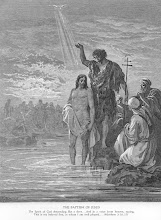When I was doing my studies I had one lecturer who insisted that every day we, as a class would pray the Lord’s Prayer in Latin, however the text we used differed slightly from what we were accustomed to in that, rather than speaking of the usual, ‘panem nostrum cotidianum’ (our daily bread) - the version used in the liturgy and in personal prayer when praying the prayer in Latin - we spoke of ‘panem nostrum supersubstantialem’ (more on this term below).
It is important to know that there are two versions of the Lord’s Prayer in the New Testament: One in the Gospel of Matthew (Mt 6:9-13) and the other in the Gospel of Luke (Lk 2-4). Luke’s account of the Lord’s Prayer has 5 petitions, while Matthew’s account has 7 petitions. In the liturgy it is essentially Matthew’s version, as it appears in the Vulgate (the Latin translation of the Bible, prepared chiefly by Saint Jerome at the end of the 4th century, and used as the authorized version of the Roman Catholic Church), that is used. However, in the petition regarding the daily bread, the version used in Latin is that from the Vulgate translation of Luke which speaks of ‘panem… cotidianum’, rather than Matthew’s version which speaks of 'panem... supersubstantialem’.
Looking at the Greek text, however, we see that the word describing the bread in both gospels is the same: 'epiousion'. Nowhere else in Ancient Greek literature do we have this term, so there was much debate as to the exact meaning. The Fathers of the Church gave many interpretations, but seem almost unanimous that the bread referred to in the Lord’s Prayer is not solely the bread for bodily existence, but the heavenly bread of the Eucharist. St. Augustine added a third interpretation: that the bread was the Word of God as it is heard and lived daily by the faithful.
“We must take all three meanings conjointly; that is to say, that we are to ask for all at once as daily bread, both the bread necessary for the body, and the visible hallowed bread, and the invisible bread of the word of God.” St. Augustine, On the Sermon on the Mount.
Pope Benedict XVI has the following to say on this petition:
"Today there are two principal interpretations. One maintains that the word means “what is necessary for existence”. On this reading, the petition would run as follows: Give us today the bread that we need in order to live. The other interpretation maintains that the correct translation is “bread for the future”, for the following day. But the petition to receive tomorrow’s bread today does not seem to make sense when looked at in the light of the disciple’s existence. The reference to the future would make more sense if the object of the petition were the bread that really does belong to the future: the true manna of God. In that case, it would be an eschatological petition, the petition for an anticipation of the world to come, asking the Lord to give already “today” the future bread, the bread of the new world — Himself. On such a reading, the petition would acquire an eschatological meaning. Some ancient translations hint in this direction. An example is Saint Jerome’s Vulgate, which translates the mysterious word epiousios as supersubstantialis (i.e., super-substantial), thereby pointing to the new, higher “substance” that the Lord gives us in the Holy Sacrament as the true bread of our life."
Benedict XVI, Jesus of Nazareth, Doubleday, New York 2007, pg.154
The different translations of this same word, epiousion, show that the Church would not confine itself to one single understanding of the multiple meanings which this phrase could have. The fact that the liturgy felt free to borrow the text of the Lord’s Prayer from Matthew’s version while using the translation of epiousion, as found in the Vulgate version of Luke’s account, shows that the Church and her liturgy, while listening to, serving and drawing upon the scriptures, also has the responsibility and power to present those scriptures to the faithful in a way that she feels is better suited to them.
However, in choosing the term ‘daily’ for the Lord’s Prayer the Church does not mean to exclude the other deeper meanings connoted in this term, and a sound catechesis is needed to ensure that this is understood by the faithful. The
Catechism does just this, and explains the multiple senses of the term (CCC 2828 -2837). The fact that the Lord’s prayer is prayed at the moment in the Mass immediately prior to the distribution of the Eucharist should reinforce the eschatological or other-worldly dimension of those words regarding our daily or super-substantial bread. We pray that the Father may grant us now a foretaste of that heavenly banquet to which we are called in Christ. And his response is to feed us with the body and blood of his Son.
"In the Eucharistic liturgy the Lord's Prayer appears as the prayer of the whole Church and there reveals its full meaning and efficacy. Placed between the anaphora (the Eucharistic prayer) and the communion, the Lord's Prayer sums up on the one hand all the petitions and intercessions expressed in the movement of the epiclesis and, on the other, knocks at the door of the Banquet of the kingdom which sacramental communion anticipates." CCC2770

